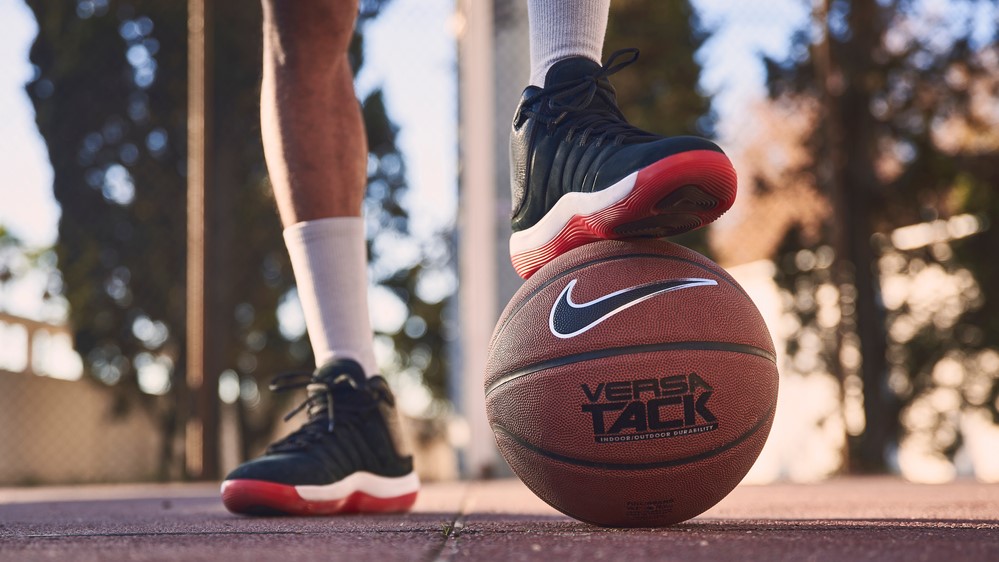You’re seriously thinking about changing up your routine and becoming more active. Suddenly, running sounds like a great idea, and it doesn’t require much equipment, either. There’s an old pair of sneakers in your closet from when you used to shoot hoops, but are basketball shoes good for running, or is it time for some shoe shopping?
After all, basketball requires a lot of running, so it’s only logical that the shoes designed for this sport can be used for your morning runs, right? Well, we’re not so sure about that.
We know, we know. A pair of high-quality sports shoes can be pretty expensive, so why not use the ones you already have? They can’t be that different…
Well, we’ll just say one thing: There’s a reason they’re called running shoes. They’re designed for that specifically. Their main role is to help you run long distances. Basketball shoes, on the other hand, are made to endure the challenges of that specific sport.
Still, the difference doesn’t seem too significant. So, are basketball shoes good for running, or should you ditch the idea completely? We’re here to help you figure it all out.
Are basketball shoes good for running?
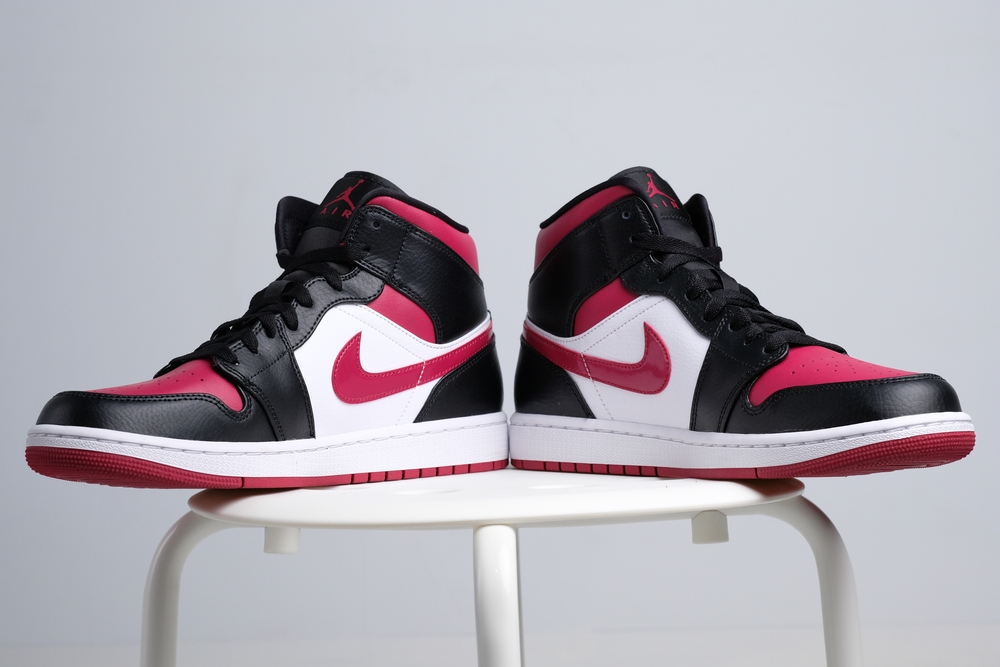
If you have absolutely no other option, sure, you can give basketball shoes a shot. However, they’re definitely not a substitute for running shoes. They’re designed to provide support for unpredictable and harsher movements.
Because of that, most of them are a lot heavier and bulkier than your regular running shoes, which can be a real issue in the long run (no pun intended).
Let’s just imagine a basketball game, shall we? What are the players doing? They’re springing in all ways imaginable – sideways, diagonally, making sudden stops after a few steps. All their movements are rough and strong, and their ankles need all the support they can get.
That’s why their shoes are designed to be durable, stable, and supportive. Running shoes, on the other hand, are a lot softer and lighter. Athletes run in a straight line, constantly keeping one movement. Their shoes are a lot more flexible than basketball ones.
On top of that, they’re designed with thicker soles, comfy insoles, and heels that can absorb the impact and force. That way, they protect your feet (and legs!) from injury and strain.
What are basketball shoes?
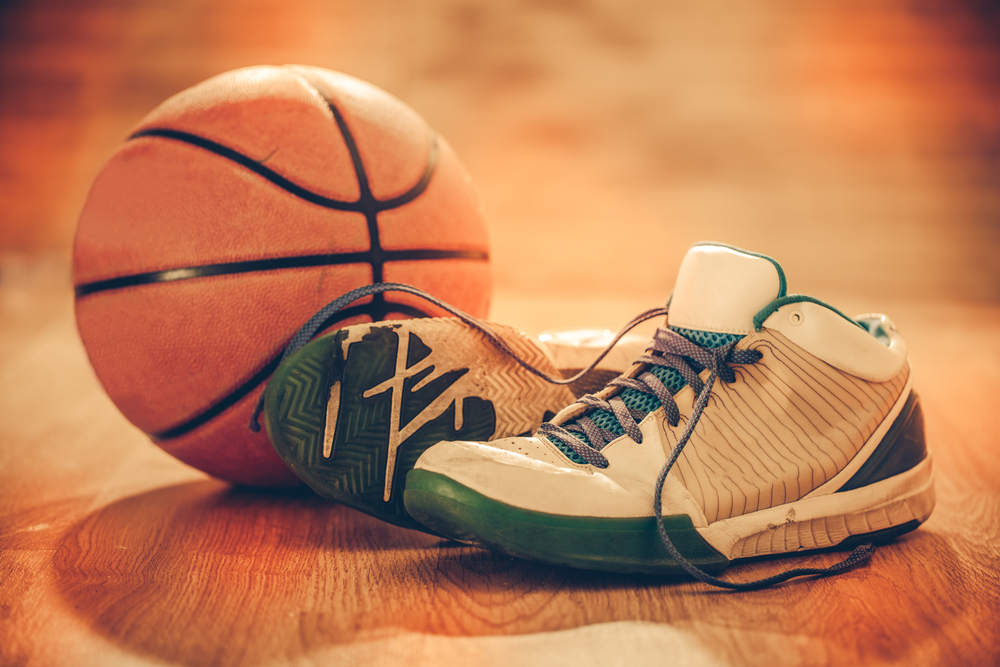
Most of us love watching basketball because of the constant action. It’s a fun and exciting game that keeps you on your toes. Players know best what it takes to constantly be running, jumping, pivoting, and more. And you know what helps them? Their beloved shoes.
Basketball shoes are designed to help the players keep a fast pace and make sudden, rough movements. Because of that, their main focus is on support, stability, and traction.
The upper part of basketball shoes is what’s responsible for support and security. It’s designed to fit snugly on top of the foot, keeping it in place and limiting its movement in the shoe. Uppers are usually high-cut for ankle support, but they’re also made in the form of mid and low-cuts.
Basketball shoes’ most important element, however, is the midsole. Midsoles are made of different materials, such as gel, air, and synthetics. That way, the cushions last longer and are a lot thicker.
And, lastly, the outer sole keeps the balance of the player. It’s designed with various patterns that help the wearer keep stable on the court without slipping.
What are running shoes?

Every time you put on running shoes, you’re probably surprised by how lightweight they are. Seriously, they feel like nothing on your feet! And when you think about it, that’s exactly what runners need.
I mean, just imagine running long distances and feeling like you’re dragging your feet because of how heavy your shoes are. And unlike basketball shoes, footwear designed for running is a lot more flexible.
When you compare them side by side, you may notice that running shoes are cut lower, usually below or at the ankle, which provides the wearer with more flexibility. On top of that, their heels are usually a lot thicker because of the cushioning, which accommodates the running stride.
Because you mostly run on hard ground or pavement, the designers ensure your running shoes can absorb shock and impact. Basketball shoes, on the other hand, usually have flat soles that enable the player to make sudden movements on the court.
Why you shouldn’t run in basketball shoes
Listen, wearing basketball shoes instead of ones made for running won’t be the end of the world, but it shouldn’t become a habit. Basketball footwear is a lot heavier, which could put too much stress on your feet, legs, and even hips.
As a runner, you need lightweight shoes that are responsive, comfortable, and breathable. Your ankle should be able to move around freely to work with the running motion. Here are some of the main reasons you shouldn’t run in basketball shoes.
1. They’re too heavy
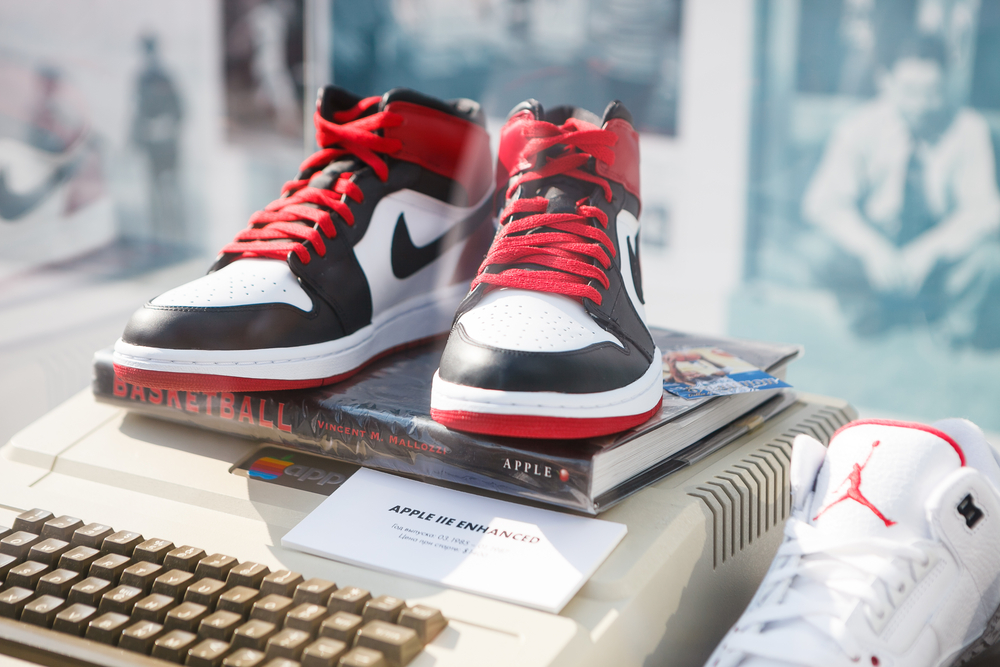
Basketball shoes aren’t designed for long-distance running. If you use them daily, you’ll notice they may become too heavy for you. After some time, your feet will get heavy, and you won’t be able to complete your usual distance.
On top of that, they don’t provide the type of cushioning you need. Because they’re made to be stable and durable, basketball shoes are usually made of thicker and heavier soles and insoles that might put too much pressure on your body.
2. Risk of fractures
If you’re into sports, you know how common stress fractures are. They’re probably one of the most common injuries. How do they happen? Well, stress fractures occur when there’s repetitive high-impact motion involved.
Warning: This is going to sound painful, but these are essentially tiny breaks in your bones. Most of the time, they happen in the lower leg bones.
I’m pretty sure you want to avoid these at any cost, so what causes them?
Well, starting a new sport, for example, could put some extra stress and strain on your bones, which could in turn cause fractures. On top of that, if you suddenly decide to change up your practice and train extra hard, you’re at risk of fractures.
Another common factor is physical abnormalities. Fallen arches, for example, are a big reason behind these tiny breaks. Because of that, it’s important to get shoes with plenty of cushioning that can support your arch.
And, lastly, wearing worn-out or improper footwear is never a good idea. If you’re going for a run, make sure you wear shoes that are designed for running. Go shopping, find the ones that fit you like a glove (or a sock), and don’t hesitate to spend some extra bucks. You’ll be glad that you did.
3. They can change your running stride
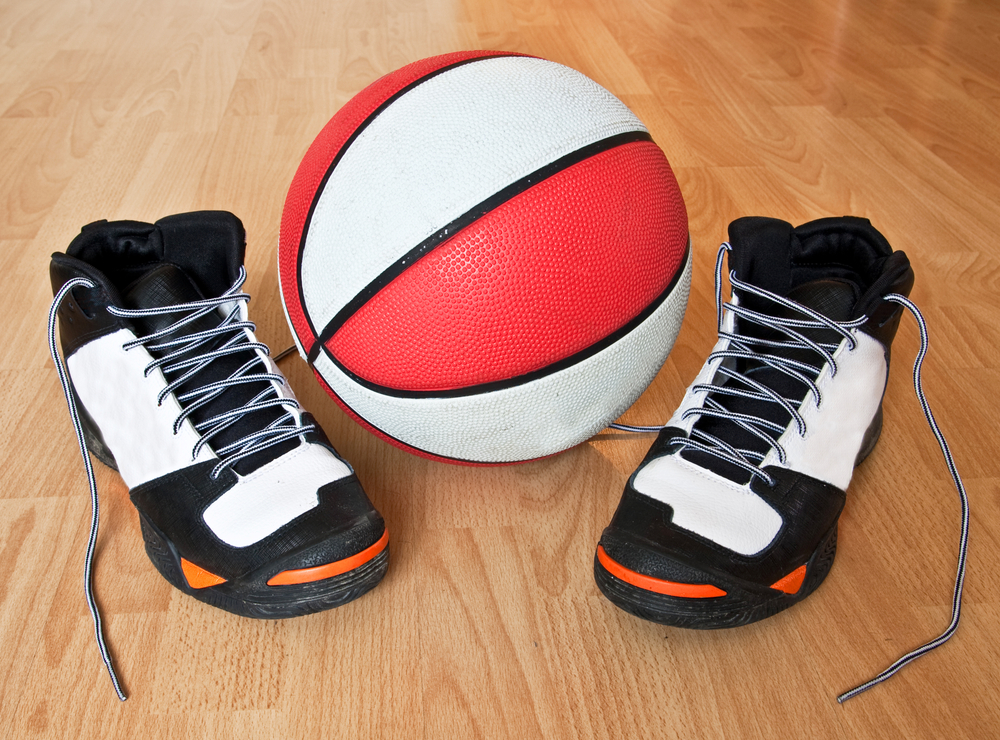
We have to talk about the importance of running shoes when it comes to keeping your natural stride. They’re designed to keep your feet in their natural position, with a smooth forward motion from the heel to the forefoot.
Here’s the thing. If you decide to use your basketball shoes for running, it can interfere with this smooth and straightforward movement. How, you may wonder? Well, mostly because they’re a lot heavier and specifically constructed to provide extra support for quick moves players make on the court.
Running requires a pair of lightweight shoes. You don’t want to put in too much effort when lifting your feet. They’re designed in a way that makes it easy for you to pick up your feet and maintain a smooth and steady pace.
Another thing that works in favor of your neutral gait is the flexibility running shoes offer. Most importantly, they allow your ankles to move around freely and work in harmony with the motion you make during running.
When you wear flexible shoes, they help prevent unnecessary strain on your joints, as you’re able to move your feet naturally in a smooth and steady motion.
4. Risk of Achilles tendon injury
What is the Achilles tendon? It’s this fascinating tendon that stretches all the way from your heel to your calf muscles. And, fun fact: it’s the largest tendon in your whole body! It plays a pretty big role, too, as it gives you the ability to point your toes downward and even walk on tiptoes.
Unfortunately, the Achilles tendon is usually put under a lot of stress in sports, especially those that require a lot of running, jumping, and quick and sudden motions such as basketball. But, did you know that wearing basketball shoes while running can increase the risk of injuring this tendon, too?
Running puts your feet in a specific motion that needs plenty of support and cushioning. Basketball shoes, on the other hand, aren’t designed with the kind of support you need, which could lead to injury.
Running shoes come with the right amount of cushioning and in all the right places. They can absorb shock and reduce stress, which could potentially save your Achilles tendon.
Read more: Shoe Crisis: Can You Use Basketball Shoes For Volleyball?


